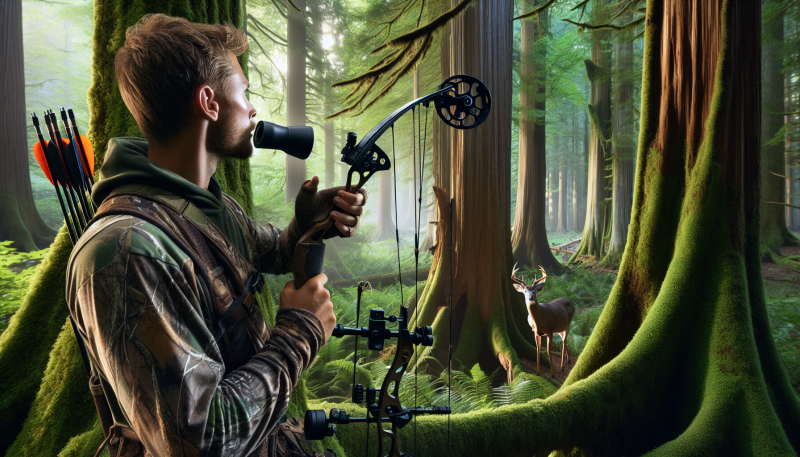The most common types of turkey calls include box calls, pot calls, diaphragm calls, and push-button calls. Box calls are great for beginners and produce a clear, high-pitched sound that mimics a hen turkey. Pot calls, also known as slate calls, produce softer, more seductive sounds and are great for subtly calling in turkeys. Diaphragm calls, or mouth calls, are hands-free options that require some practice to use effectively but can produce incredibly realistic sounds. Push-button calls are the easiest to use and are great for beginners who want a simple, effective call.
No matter which type of turkey call you choose, it's important to practice using it before heading out into the field. Familiarize yourself with the different sounds each call can produce and learn how to mimic different turkey vocalizations. The more proficient you become at using turkey calls, the more success you'll have in attracting and harvesting turkeys during your hunt. So make sure you have the right turkey calls in your bag of essential hunting supplies before you head out into the woods.
Camouflage Clothing
One of the key benefits of wearing camouflage clothing is that it helps break up your silhouette, making it harder for turkeys to spot you. By choosing colors and patterns that match the natural environment, you can effectively become invisible to your feathered prey. This is especially important when hunting turkeys, as they have keen eyesight and can easily detect movement or unnatural shapes in their surroundings.
In addition to helping you blend in, camouflage clothing also provides practical benefits for turkey hunting. Many camo patterns are designed to be lightweight and breathable, allowing you to stay comfortable and agile while out in the field. Some clothing even incorporates scent-blocking technology to help mask your natural odor, giving you an extra edge when trying to outsmart a wily old tom. Ultimately, investing in quality camouflage clothing can make all the difference when it comes to a successful turkey hunt.
Ammo and Shooting Gear
When heading out for a turkey hunting trip, having the right ammunition is crucial. It's recommended to pack a variety of shot sizes ranging from 4 to 6, as turkeys have tough feathers that require a strong impact to take down. It's also important to consider the gauge of your shotgun - most hunters opt for a 12 gauge for turkey hunting due to its power and range.
In addition to ammunition, having the proper shooting gear is essential for a successful hunt. A quality turkey call is a must-have item, as it will help you mimic the sounds of a turkey and lure them in closer. Opt for a mouth call or friction call for versatility in different hunting scenarios. A reliable pair of binoculars can also make a huge difference in spotting turkeys from a distance and identifying their behavior.
Other shooting gear to consider includes a comfortable and sturdy hunting vest with pockets for storing ammunition and calls, as well as a reliable camouflaged hunting blind or chair for staying hidden while waiting for your prey. Proper ear protection is also key to prevent hearing damage from repeated gunfire. Remember to practice gun safety at all times to ensure a safe and enjoyable hunting experience.
Field Dressing Tools
First and foremost, a sharp knife is a crucial tool for field dressing a turkey. A high-quality, fixed blade knife with a sturdy handle is ideal for making clean cuts and efficiently breaking down the bird. Make sure to keep your knife sharp throughout the process to prevent tearing the meat and ruining your hard-earned harvest.
In addition to a sharp knife, a pair of game shears can also come in handy when field dressing a turkey. These shears make it easier to trim away feathers and skin, as well as to cut through tougher joints and bones. Look for a durable pair of game shears with a spring-loaded handle for easy one-handed operation.
Lastly, a good pair of field dressing gloves is essential for keeping your hands clean and protected during the dressing process. Whether you prefer disposable latex gloves or a more heavy-duty option like neoprene gloves, having a pair on hand will help keep your hands free from blood and other contaminants. Plus, gloves can provide an extra layer of protection against sharp knives and bones.

